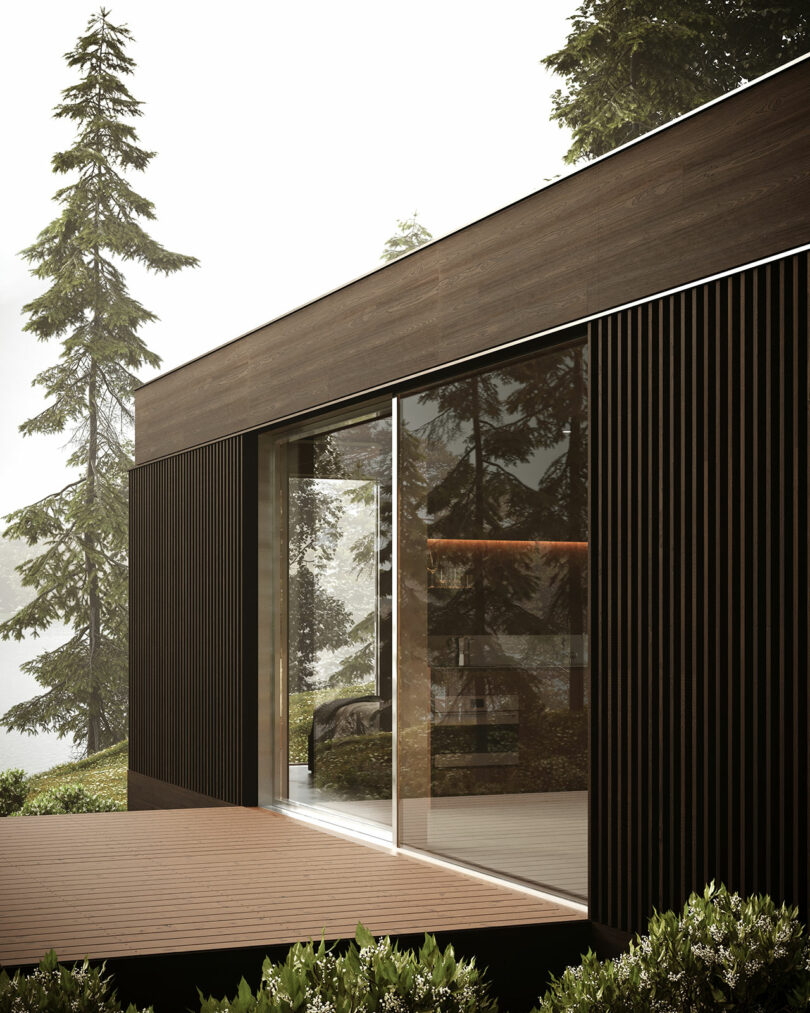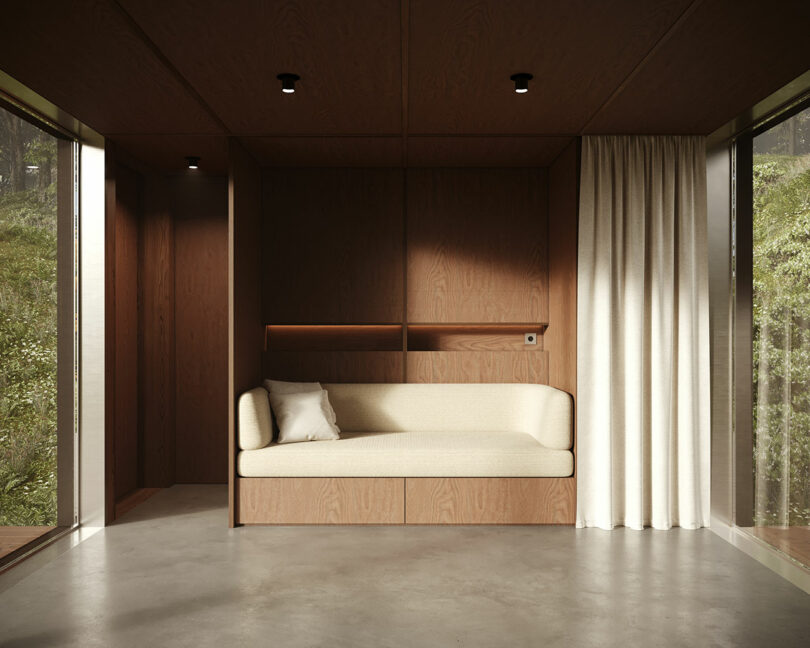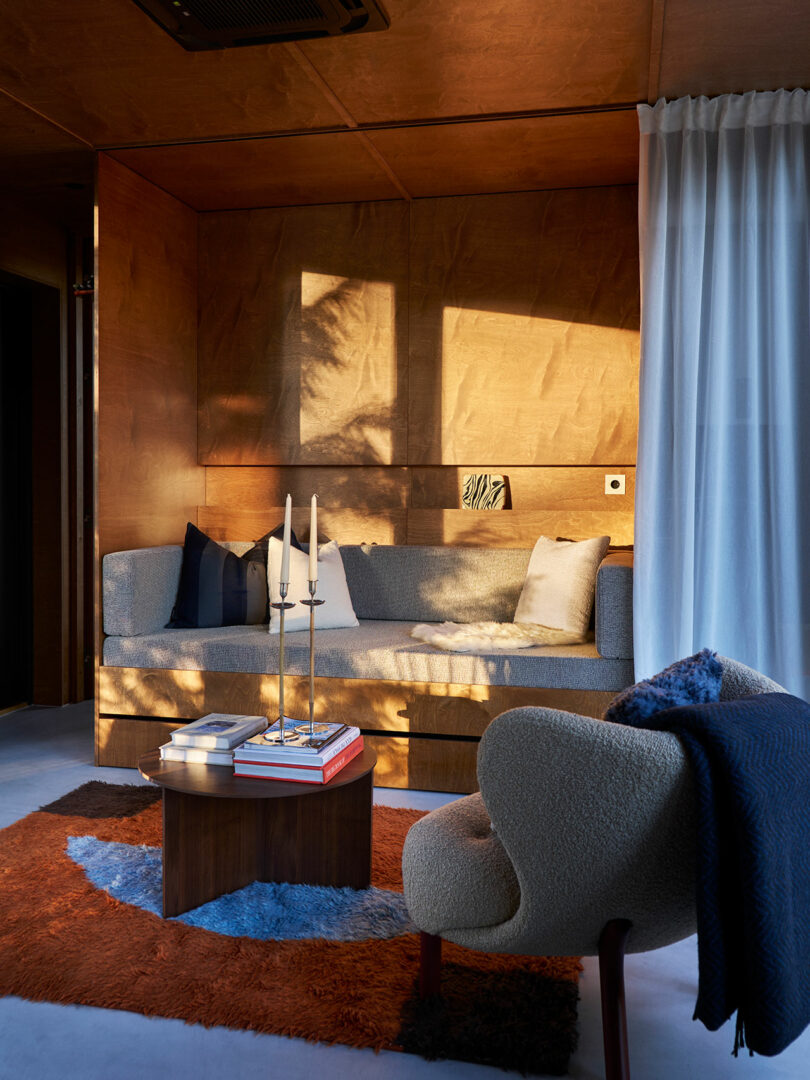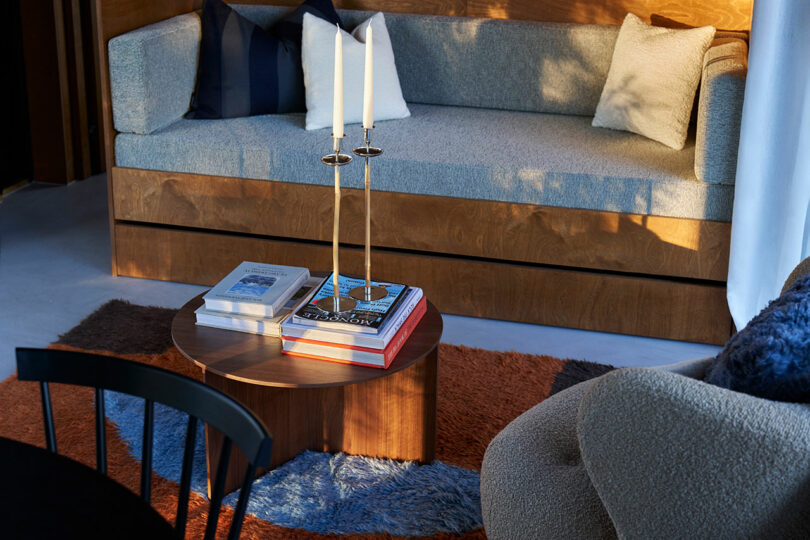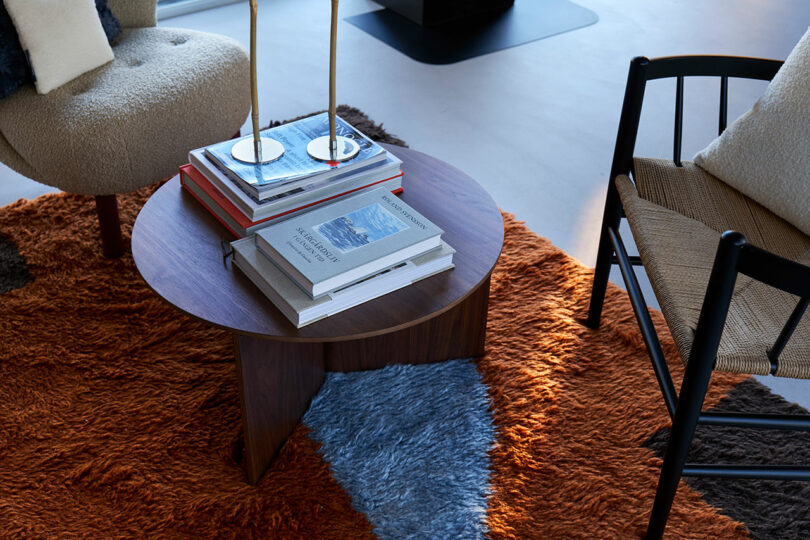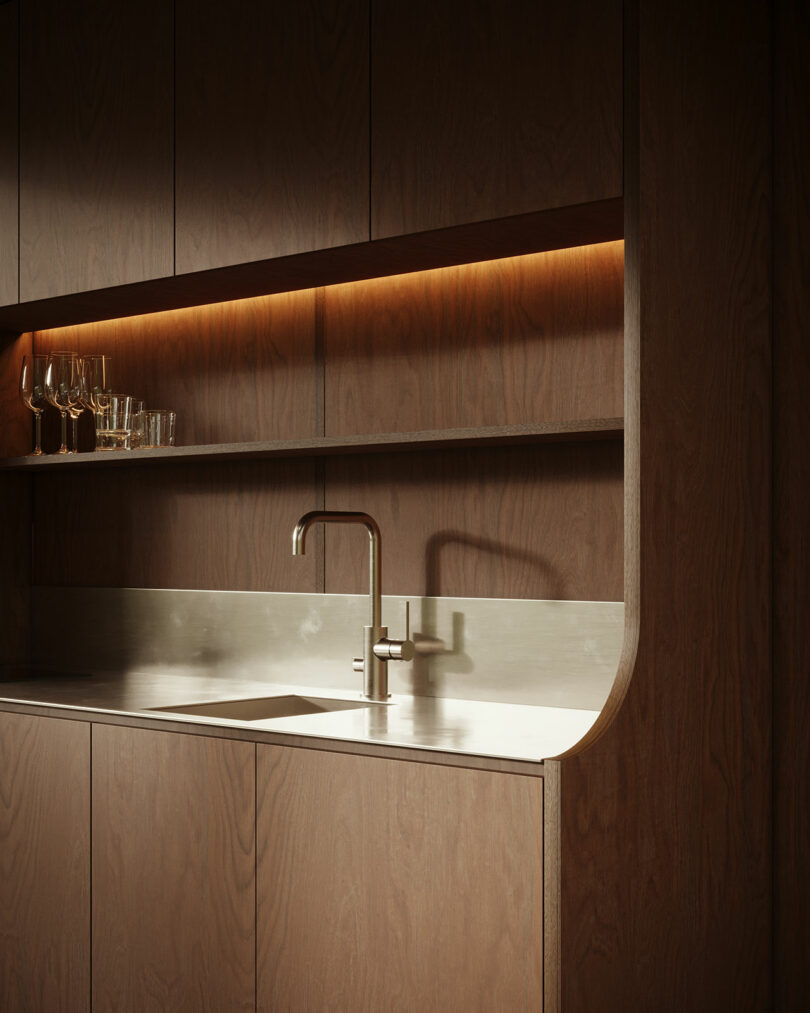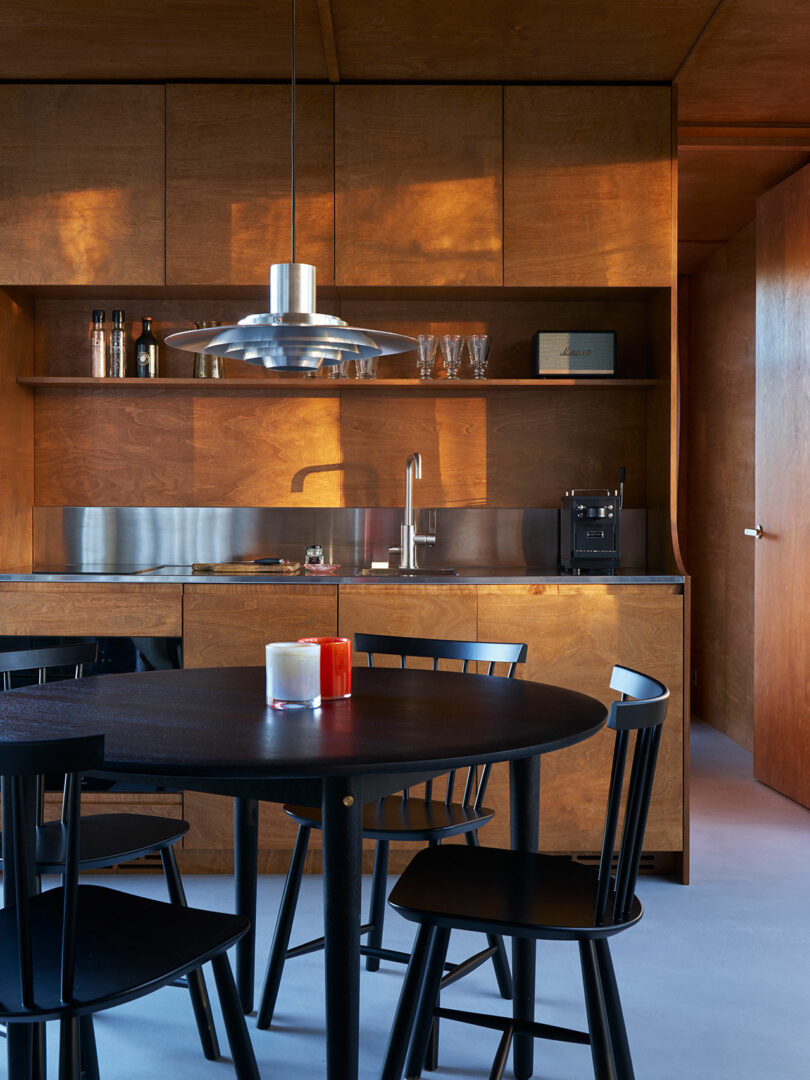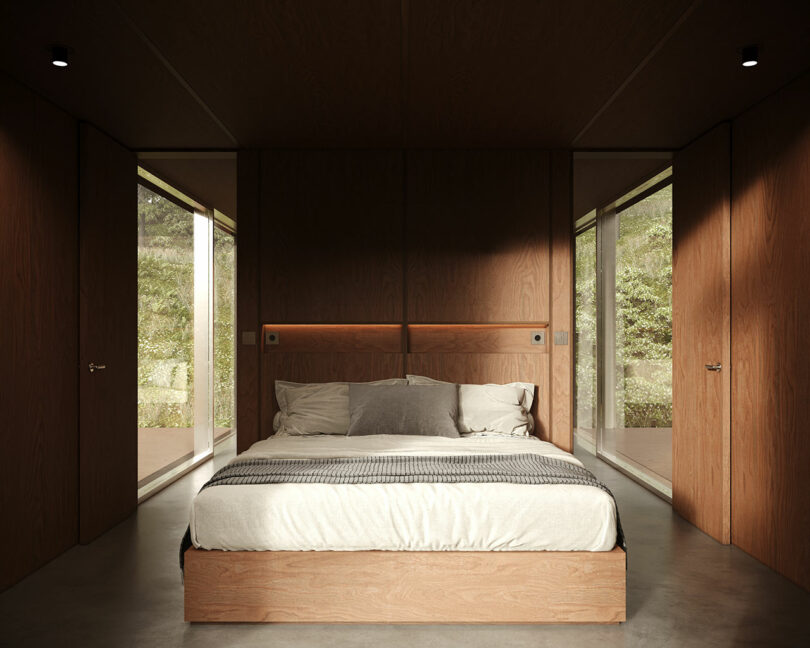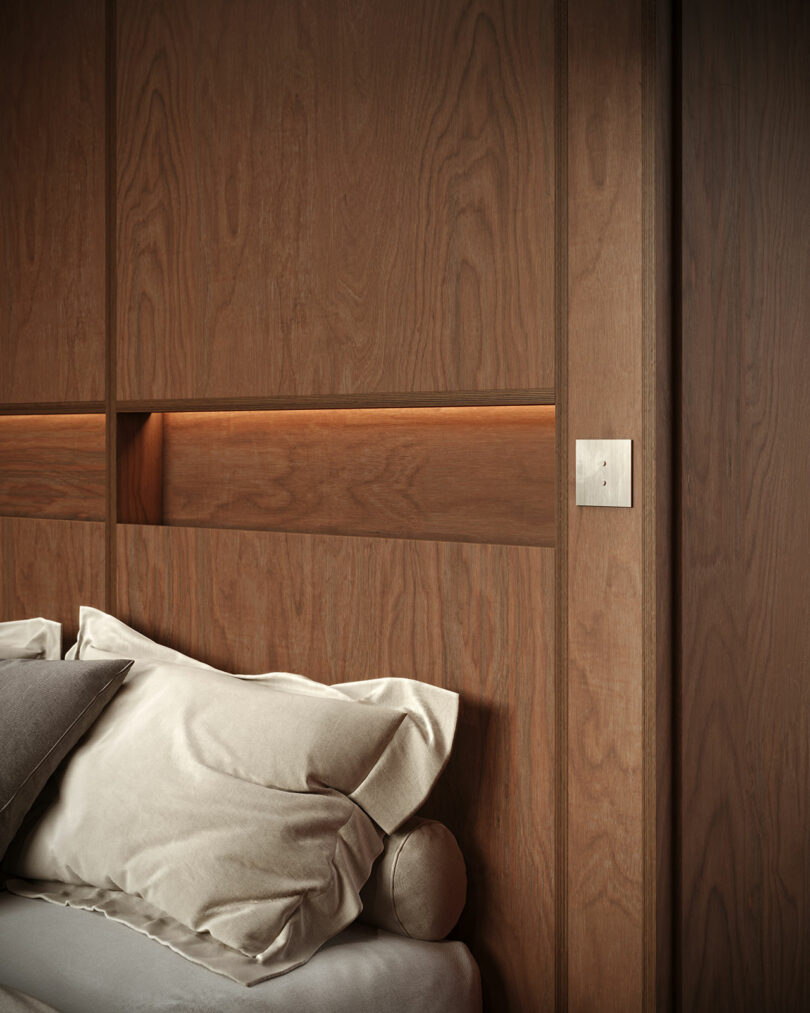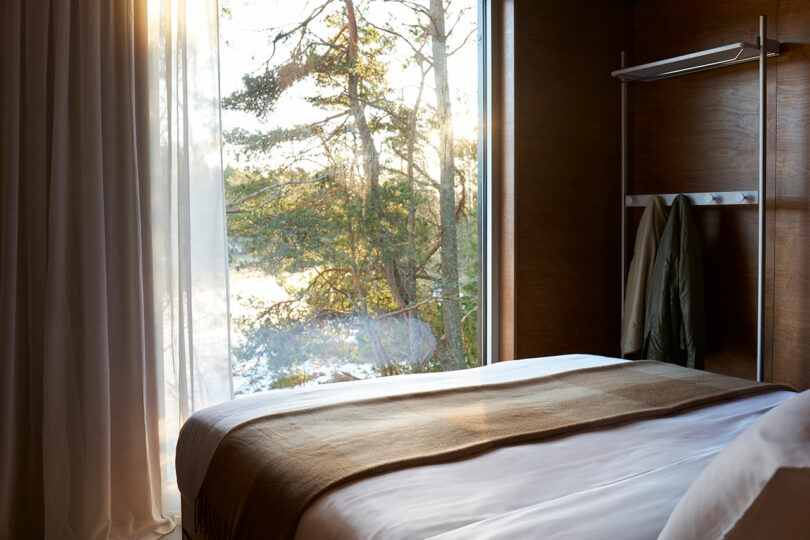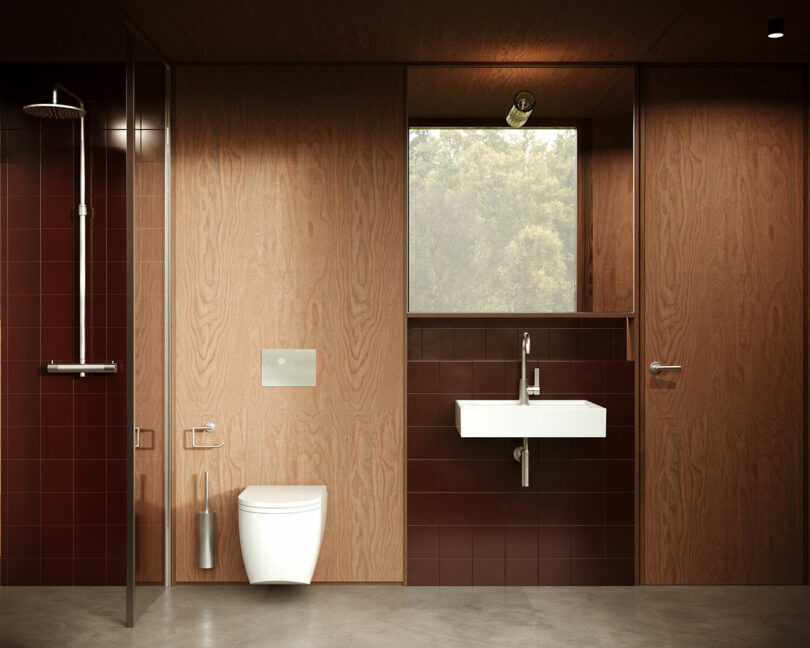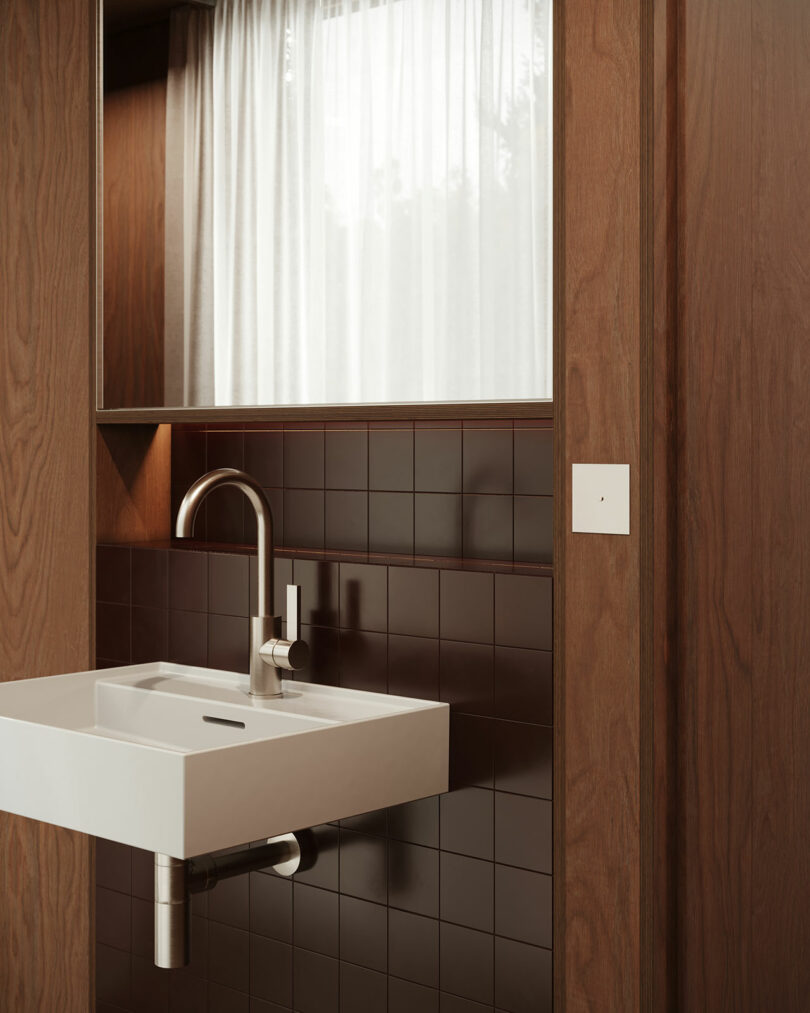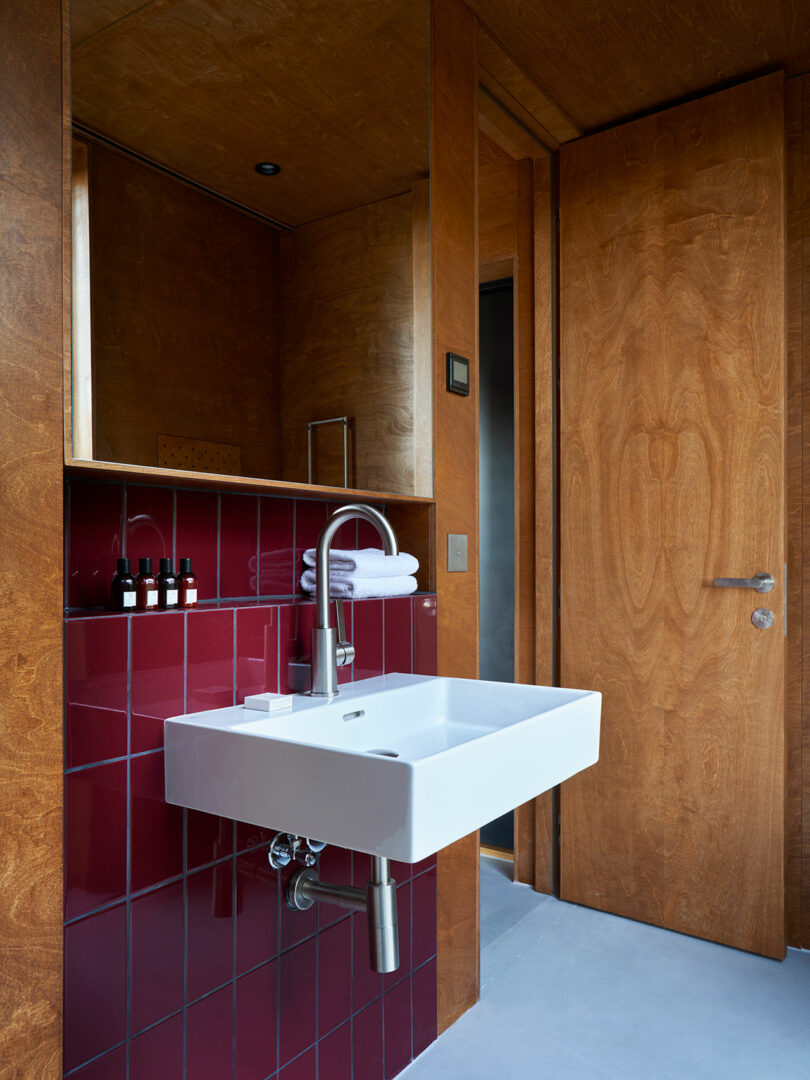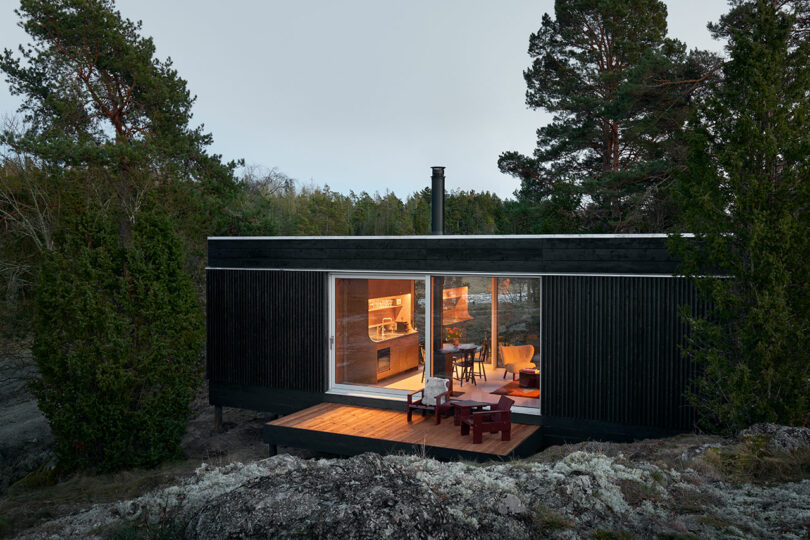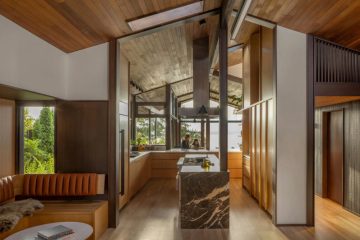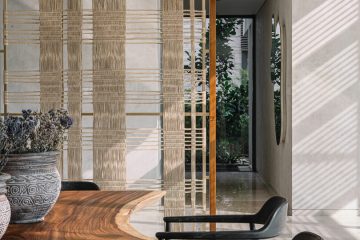The patinated, earthen hues of Simon Ungers’ expansive T-House. The plinth from Ludwig Mies van der Rohe’s Farnsworth House. And generous glazing like that in Philip Johnson’s Glass House. Elements from these iconic homes are echoed in Landet, a series of modern cabins designed by Swedish architect Andreas Martin-Löf for the emerging hotel brand. The brainchild of co-founders Umberto Garabello and Ted Wachtmeister, Landet marks a new hospitality concept where preserving the natural environment is as much a focus as creature comforts and contemporary design. It offers thoughtfully planned, sustainable cabins located in a reserve near Trosa, one of the nation’s most picturesque archipelagos an hour outside of Stockholm, to provide an eco-friendly escape from the din of city living while still accessible by public transport. Aptly named – its moniker is Swedish for “the country” – the architecture is idyllic, empathetic, and highly edited.
Photo: Magnus Mårdig
Photo: Magnus Mårdig
Dotting the 400-hectare landscape are four roughly 430-square-foot cabins situated in context with extreme precision intended to preserve the pristine flora and fauna. By working with fully fitted and furnished volumetric buildouts, Martin-Löf and the Husverket construction team avoid invasive and otherwise disruptive construction on site. Instead, each unit is manufactured in a local factory off-site, brought in, and placed on a simple plinth foundation, which creates the illusion of floating above the rock and lends itself to easy dismantling. As guests of the forest, the architect ensures that no permanent destructive human intervention is made. “I learned that it is possible to refine this type of building to a much higher level than we have done in previous projects and that we could protect the surroundings better by working elsewhere,” Martin-Löf says.
Photo: Magnus Mårdig
Sparsely detailed, the exterior of each wood-clad cabin is coated in all-natural, black-brown pine tar, traditionally used in Scandinavia to preserve the material’s longevity when exposed to harsh conditions. Protruding decks, millwork, and mantles move the eyes in, up, and over in celebration of the expanse within which the structure is visually locked. That same level of refinement and simplicity permeates the interior with a well solved and efficient plan atop microcement floors, which hosts 2-to-4 guests with every visit. Each building is fully equipped with modern accoutrements that facilitate extended stays – not to mention services like massages, yoga classes, meditation sessions, and grocery delivery. Bookended between floor-to-ceiling glass, the programming includes a living room with a fireplace, dining area, and a well-equipped kitchen. The bedroom includes lush textiles, and the ensuite bathroom has heated floors and a rain shower.
Finding synergy in a shared ethos, the London-based designer Tobias Vernon was enlisted by Landet’s co-founders to lend an international sensibility to the project while collaborating with Martin-Löf to maintain a distinctly Swedish identity. “Andreas brought a wonderful materiality to the project in terms of natural timbers and contrasting metal surfaces. There is a classicality to these whilst also being contemporary and bold. We ensured the interiors remained restrained but juxtaposed this with elements of color and visual contrast.” Vernon says. “We also worked closely with the Danish furniture brand &Tradition to develop a version of their iconic Little Petra armchair, exclusive to Landet, with red lacquered legs – it’s adorable!” Additional furnishings and finishes are sourced from local artisans to eliminate the cost of shipping and subsequent carbon footprint.
Photo: Magnus Mårdig
Landet’s allure draws guests that are said to include pop and political royalty alike. “Andreas’ practice manages to strike a perfect balance between architecture that is noteworthy yet discreet,” Garabello says. “The cabins are designed to blend into the environment while making a strong architectural statement.” With another six cabins in the works locally, the company hopes to bring this uniquely Scandinavian way of life to the countryside elsewhere throughout Europe. Cozy, comfortable, and extremely considerate, a new paradigm for hospitality emerges.
Photo: Magnus Mårdig
